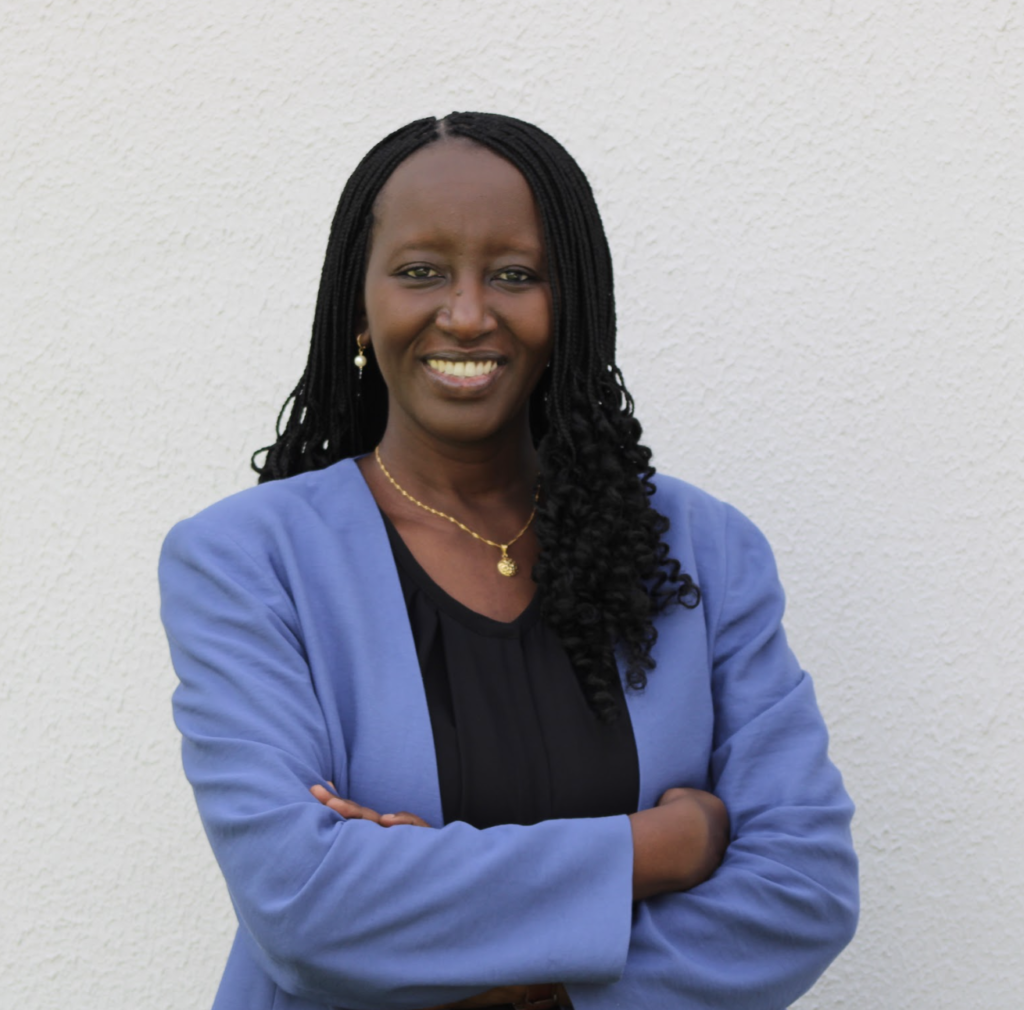- #1 Desire Change
- #2 Have a Goal Bigger than Yourself
- #3 Take Risks
- #4 Keep Situations in Perspective
- #5 Feel Your Emotions
- #6 Forgive Yourself and Others
- #7 Embrace Adaptability
- #8 Be Open to Lifelong Learning
- #9 Ask for Help
- #10 Rest Your Mind and Body
- #11 Do Something You Enjoy
- #12 Reflect on Your Progress
- Reflection Exercise of the Month
- Closing Thoughts
- Subscribe to my Newsletter
Do you want to learn to bounce back from adversity and keep on track with your goals? If yes, this article is for you.
Resilience is a central theme in my memoir, Destined: A Story of Resilience and Beating the Odds. Resilience has been the key ingredient that has allowed me to achieve personal, academic, and professional goals.
For me, resilience is the ability to deal with, overcome, and learn from adversity. In this article, I discuss 12 ways to build resilience to help you achieve your goals in life, regardless of the context.
#1 Desire Change
A strong desire to change something in your life can lead you to build resilience. For example, I wanted to pull myself and my family out of poverty and that desire launched me on a 11-year academic journey, going from a GED (the equivalent of a high school diploma) to a master’s degree.
To keep up with your commitment long term, your desire for change needs to be stronger than any adversity and setback you’ll face along the way. This means you have to know why you desire that change and believe that the benefits of your end goal outweigh the sacrifices you’ll endure in that process.
To learn more about my educational journey, download a free chapter from my memoir, Destined here.
A desire for change is a compelling inner drive that keeps you going, even when you fear you will fail and doubt that any of your efforts will pay off.
What is one thing you truly want to change in your life and why?
#2 Have a Goal Bigger than Yourself
If your goal is bigger than you, that will help you stick with your efforts instead of quitting when things get hard.
The thought of quitting my academic journey came to me often throughout its different stages. For instance, when I was pursuing my GED, I struggled to pass its math test because I had a weak academic background. At the time, I was also working part-time and taking care of my children and marriage. I sometimes thought I should just stick to work and family and not bother myself with school.
But a louder voice in my head told me that earning my GED would serve my family well long term. I could better help my children with their education and potentially get a better job to improve our financial situation as a family.
Because my goal was bigger than myself, I kept going with my education. I ended up passing my math GED test on the third attempt. Earning that GED led me to community college, then to an Ivy League university and a top master’s program. If I had quit at any point in that journey, I wouldn’t have made the progress needed for me and my family.
Having a goal bigger than yourself allows you to withstand the many difficult days in your journey and builds your resilience.
What is one key goal you have that is bigger than yourself, and who else would benefit when you achieve it?
#3 Take Risks
Taking risks for me means having zero guarantee that you’ll achieve your goal but trying your best anyway. Trying, despite the risk of failure, is a powerful process, because you’re betting on yourself.
In trying a new and risky endeavor, you’re exposing yourself to new knowledge in abundance, to mistakes in abundance, to failure in abundance, to growth in abundance. I’ve become more open to taking risks because I’ve experienced personal, academic, and professional growth from it.
For example, in community college, I decided to start writing for the college student newspaper without having any background in such work. I could’ve failed in my attempt. Instead, that experience led me to strengthen my writing skills, later report for different publications, and eventually write my memoir, Destined. At the time, I didn’t make the connection between writing for a college newspaper and writing a book. I was simply trying to improve my writing skills while contributing to the campus community.
Betting on yourself means taking a chance on yourself. It doesn’t matter if you can’t see the road ahead of you as long as you take a step you believe in.
Betting on yourself can be a lonely journey but also a rewarding one. I write about many of my experiences returning to school in 7 Tips to Excel as a First-Generation Student in Community College.
Taking risks allows you to learn more about yourself and how capable you are. The knowledge and confidence you acquire from these experiences are gifts you can use over and over as you face life’s challenges or as you pursue goal after goal.
What is one risk you’re willing to take for the sake of something that could benefit your life in a significant way?
#4 Keep Situations in Perspective
Remind yourself of the challenges you’ve faced and overcome. Remind yourself of the things that are working in your favor. Remind yourself that just because your circumstances are hard today doesn’t mean that will always be the case. When we’re struggling, it’s hard to see beyond our obstacles. I remember a time in my life when I couldn’t see anything in my future because my husband and I were struggling so hard to raise our children and provide for them.
But when I started to put my situation into perspective, I focused more on finding solutions and less on my struggles. As the years passed, I started to see a potential better future for me and my family, which led me to return to school.
Keeping your situation in perspective allows you to feel less overwhelmed about your day-to-day struggles and opens your mind to the possibilities in your life. In turn, that hope keeps you going.
What is going well in any aspect of your life that you can focus more of your attention on?
#5 Feel Your Emotions
Let yourself feel your emotions, especially painful ones, so you can release them and heal. As human beings, we all deal with circumstances that leave us scarred. The way we process our emotions has the power to determine how far we will go in our lives or how stuck we’ll remain.
One way I process painful emotions is by letting myself feel them. This could mean crying, talking to a trusted person about them, or reflecting in a journal.
Suppressed painful emotions are a heavy baggage that weighs us down and stops us from becoming who we are meant to be. By finding a healthy way to release painful emotions, you’re building your resilience to continue to face life with strength and energy.
Is there some painful emotion you are suppressing? How might you profit from letting yourself feel and process it?
#6 Forgive Yourself and Others
Part of feeling your emotions is also embracing forgiveness. To forgive yourself and others is to choose to let go of the pains and traumas that weigh you down. In turn, you make the space to live your life on your own terms, not dictated by past experiences.
In Destined, I write about how painful it was for me to separate from my parents at the age of 10 and be raised in a context completely unfamiliar to me, where I struggled just to survive. Years later, around the age of 27, I decided to forgive everyone who hurt me in my childhood and began my healing process.
One way I chose to heal is by focusing on what I learned from difficult childhood experiences as opposed to the sheer pain of those experiences. Forgiveness allows you to experience yourself at your fullest capacity, lightens your emotional baggage, opens space in your mind and heart to focus on the most important aspects of your life.
Who has hurt you most in your life? Can you imagine forgiving them and what effect that might have on your life?
#7 Embrace Adaptability
Adaptability is being able to adjust to situations as they occur and as they change. For better or worse, I had to learn adaptability as a child when I was sent from the Democratic Republic of Congo to Senegal and as a young adult, when I moved from Senegal to the United States. These major changes in my life forced me to embrace adaptability. I had to learn new languages, integrate myself into new societies and cultures.
I’ve also learned adaptability from many other experiences too, such as motherhood. What you quickly find out as a parent is that each child is unique, so you have to learn to raise each one as an individual. A parenting style that works with one child may completely miss the mark with another. Therefore, parenting and embracing adaptability go hand and hand.
The need to embrace adaptability was also important in my academic journey. Every institution I attended was different; every professor who taught me was different. If I were to make progress in my learning, part of my responsibility was to adapt to the places where I learned and the people who taught me.
Embracing adaptability builds your resilience; you learn to face life as it comes, adjust to new realities, and grow.
Can you describe an experience in which adaptability served you well? What did you learn from this experience that you can apply in future situations?
#8 Be Open to Lifelong Learning
To me, being a lifelong learner is seeing your life and your experiences as the ultimate classroom. Every situation in our lives teaches us something if we’re willing to learn from it. Lifelong learning is one of the biggest gifts you can give yourself.
For example, learning can take place in your college classroom, or while reading a book, or during a conversation with someone, or while taking a trip, or while observing nature, or reflecting on a past experience.
The possibilities for being a lifelong learner are limitless. Just be present to what is happening in your life and see what lessons you can draw from them. Those lessons could be useful to you in other contexts of your life. For example, you could learn lessons from being a college student that you can later apply in your profession. One of those lessons could be the importance of consistently showing up on time to classes and meetings with your professors. When you start your career, you’ll find that this habit of punctuality will serve you well.
Being a lifelong learner and implementing what you’re learning can lead you to grow continuously. In doing so, you’re also building the resilience that equips you to face the challenges life throws at you.
Can you describe a situation where you learned something in one context that became very useful in a different one?
#9 Ask for Help
Asking for help will prevent some headaches and lead to your growth much faster than if you’re trying to master everything on your own. I write about how to ask for help at community college in the article Scared to Ask for Help at Community College? Here Is How to Do It and How to Power through Feeling Out of Place at Community College: 7 Tips. Though the tips in these articles focus on community college students, most of them are relevant to any level of your higher education. Asking for help can be the difference between progress or not and between graduating from your program or dropping out.
As you build the skill of asking for help, you’re also strengthening your capacity to face tough situations head on. That is, you’re building your resilience.
Are you in any situation right now that might be improved if you asked for help?
#10 Rest Your Mind and Body
Resting allows you to re-energize, refocus, and recharge. Resting, then, is not a waste of time but fuel that allows you to remain resilient long term.
For example, I found ways to rest while pursuing my degrees at Community College of Philadelphia, University of Pennsylvania, and American University, even though my academic programs were very demanding. I took short naps at home after long study sessions. Sometimes, in the morning, I went on nature walks to reflect, simply enjoying the outdoors, or moving my body. Other times, I went to playgrounds with my kids to engage in different activities with them, such as playing tag, or basketball, or jumping rope. These moments gave me rest from the intense schoolwork. I rested either by doing nothing or by doing something that re-energized me.
Part of building resilience is being able to recognize when you’re overworked and stepping away when possible. When you protect your mind and body, you’ll perform at your highest level. You’ll also build the resilience to meet the demands of your life, no matter the context.
What is one activity that relaxes you and how can you engage in it more often?
#11 Do Something You Enjoy
Like resting your mind and body, doing something you enjoy recharges you. One thing I enjoy is reading a book on a subject that I want to learn more about or on someone’s life journey.
My favorite genre is memoir. I like how personal yet broadly applicable memoirs can be. The memoir genre gives a window into someone else’s life. It allows us to both draw lessons from that person’s journey and to learn more about the world in which that journey took place.
That’s why I wrote my memoir, Destined: to connect with the reader. And hopefully, the reader can learn through my journey that if you don’t give up on yourself, you can go far in your life, that struggles can prepare you for, and lead you to, a life of achievements and fulfillment. Reading about other people’s adversities and how they overcame them can bolster your own resilience.
I highly recommend reading as a form of recharging yourself while learning about people, skills, and the world around you, but any activity you genuinely enjoy will serve the same purpose, such as walking, journaling, exercising, or spending time with family.
What is one activity that you enjoy and how can you make time to engage in it more often?
#12 Reflect on Your Progress
It’s easy to become engulfed in our daily activities and responsibilities and not reflect on how far we’ve come. Stop every now and then to take stock of the progress you’re making. Reflecting allows you to see both your progress and the areas where you still need to improve.
When we don’t stop to reflect, it becomes hard to have clarity on where we have been, where we are, and where we are going. One way I like to reflect is through journaling or discussing with a trusted person, but there are other ways of taking stock. The clarity you gain from such reflection will help you to make decisions that align with what you want for your life.
Looking back over the last few years, what progress do you feel you have made? What areas still need improvement?
Reflection Exercise of the Month
In the discussion above, each of the 12 ways to build resilience was followed by a question. Get your notebook and pen, select five of these questions, and reflect on them in the month to come, as outlined below.
Week 1
Monday: Write a five-minute reflection on the first question you selected.
Tuesday: Write a five-minute reflection on the second question you selected.
Week 2
Monday: Write a five-minute reflection on the third question you selected.
Tuesday: Write a five-minute reflection on the fourth question you selected.
Week 3
Monday: Write a five-minute reflection on the fifth question you selected.
Week 4
Monday: Building on your reflections, put together a plan for how you’ll implement these five strategies to build resilience.
Tuesday: Start implementing your chosen strategies to build resilience.
Closing Thoughts
That’s it for this article on 12 ways to build resilience. When you implement these methods, you set yourself up to face just about anything life throws at you.
If you find this article helpful, share it with others and invite them to subscribe to my newsletter here.
Do you want to know more about how I went from a high-school dropout to a master’s degree? Order your copy of my memoir, Destined: A Story of Resilience and Beating the Odds, on Amazon.
I would appreciate your review of Destined on Amazon!
Thank you for reading. Wishing you all the best.
Keep going!

Hi, I’m Aminata Sy. I’m the author of the memoir Destined: A Story of Resilience and Beating the Odds, in which I write about how I started out in America as a high-school dropout and non-English-speaking immigrant and yet went on to earn a high-school equivalency diploma and associate’s, bachelor’s, and master’s degrees and to land a dream career. All that time, I was a wife and mother too and had plenty of family responsibilities. I help community college and university students excel in their education, so they can transform their lives for the better. Subscribe to my newsletter here: aminatasy.com/join-newsletter.
Subscribe to my Newsletter
Join our newsletter to receive monthly exclusive insights and wisdom from Aminata Sy, whose incredible journey of self-transformation has moved and inspired thousands. Aminata offers tips to community college and first-generation Ivy League students on learning, writing, reading, and resilience. You can unsubscribe at any time.

